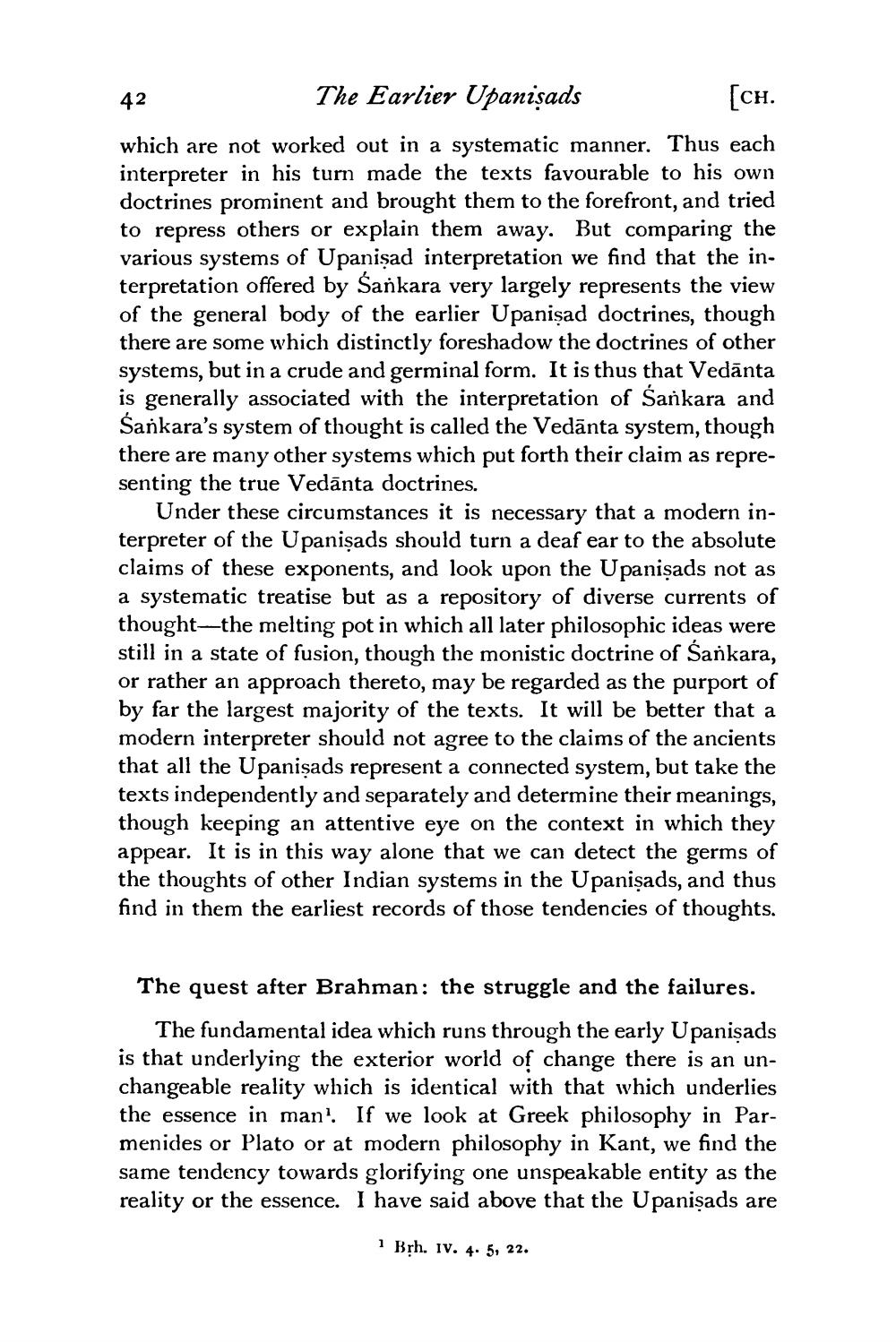________________
42
The Earlier Upanişads
[ch.
which are not worked out in a systematic manner. Thus each interpreter in his turn made the texts favourable to his own doctrines prominent and brought them to the forefront, and tried to repress others or explain them away. But comparing the various systems of Upanişad interpretation we find that the interpretation offered by Sankara very largely represents the view of the general body of the earlier Upanişad doctrines, though there are some which distinctly foreshadow the doctrines of other systems, but in a crude and germinal form. It is thus that Vedānta is generally associated with the interpretation of Sankara and Sankara's system of thought is called the Vedānta system, though there are many other systems which put forth their claim as representing the true Vedānta doctrines.
Under these circumstances it is necessary that a modern interpreter of the Upanişads should turn a deaf ear to the absolute claims of these exponents, and look upon the Upanişads not as a systematic treatise but as a repository of diverse currents of thought—the melting pot in which all later philosophic ideas were still in a state of fusion, though the monistic doctrine of Sankara, or rather an approach thereto, may be regarded as the purport of by far the largest majority of the texts. It will be better that a modern interpreter should not agree to the claims of the ancients that all the Upanişads represent a connected system, but take the texts independently and separately and determine their meanings, though keeping an attentive eye on the context in which they appear. It is in this way alone that we can detect the germs of the thoughts of other Indian systems in the Upanişads, and thus find in them the earliest records of those tendencies of thoughts.
The quest after Brahman: the struggle and the failures.
The fundamental idea which runs through the early Upanisads is that underlying the exterior world of change there is an unchangeable reality which is identical with that which underlies the essence in man'. If we look at Greek philosophy in Parmenides or Plato or at modern philosophy in Kant, we find the same tendency towards glorifying one unspeakable entity as the reality or the essence. I have said above that the Upanişads are
1 Bph. IV. 4. 5, 22.




